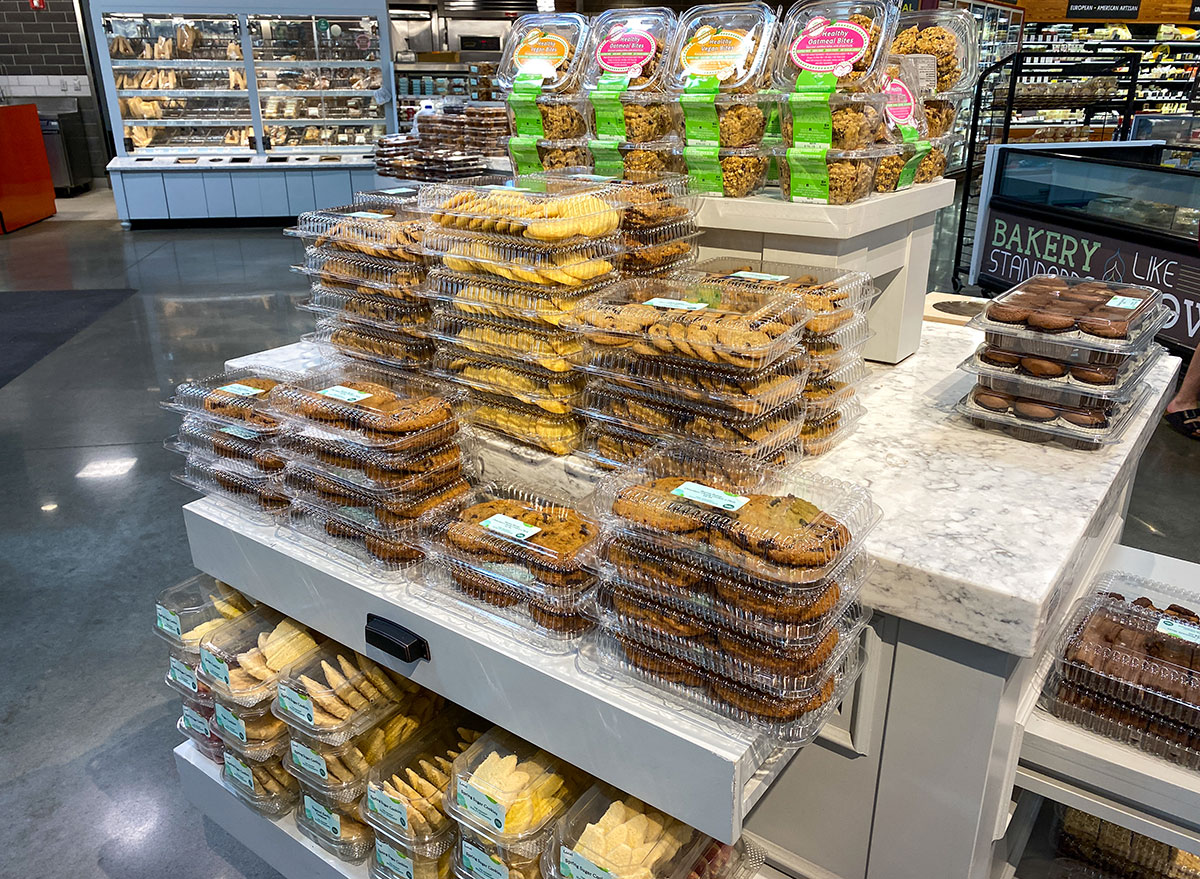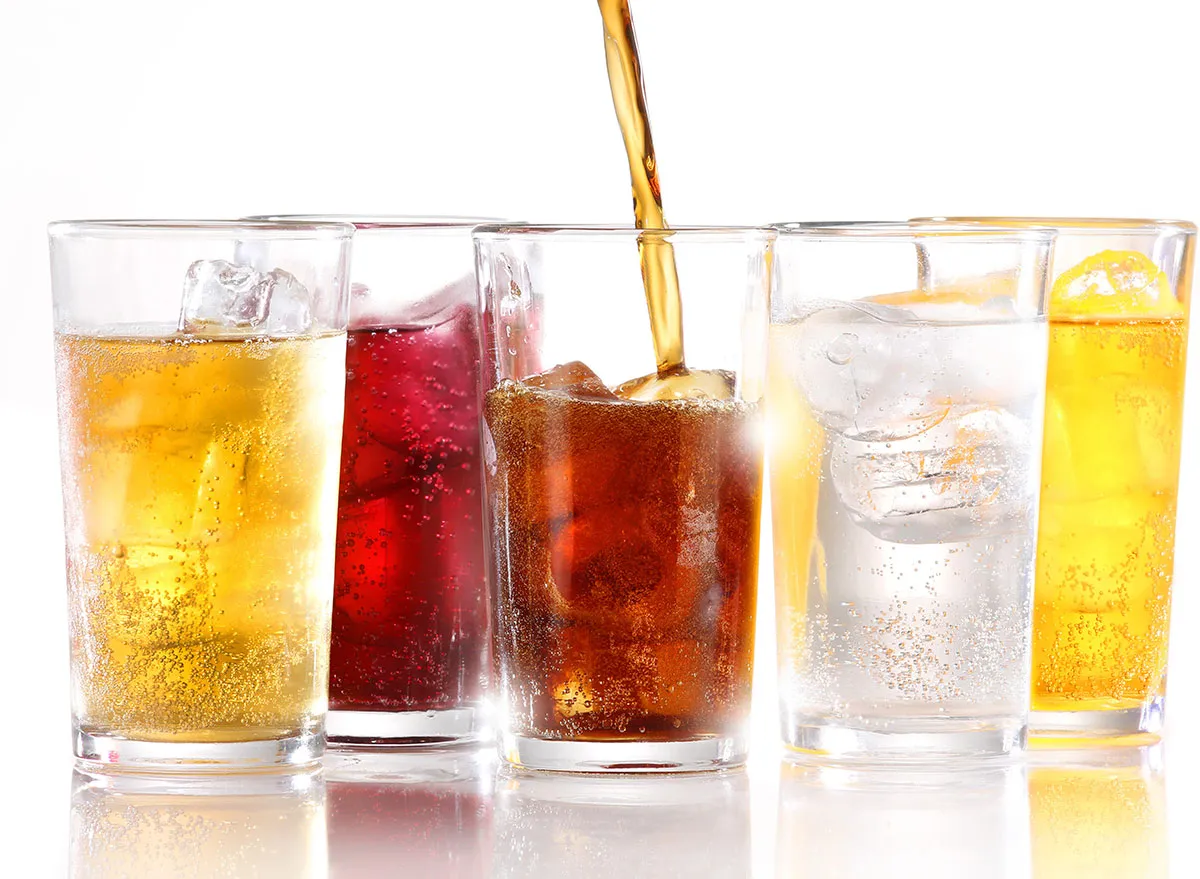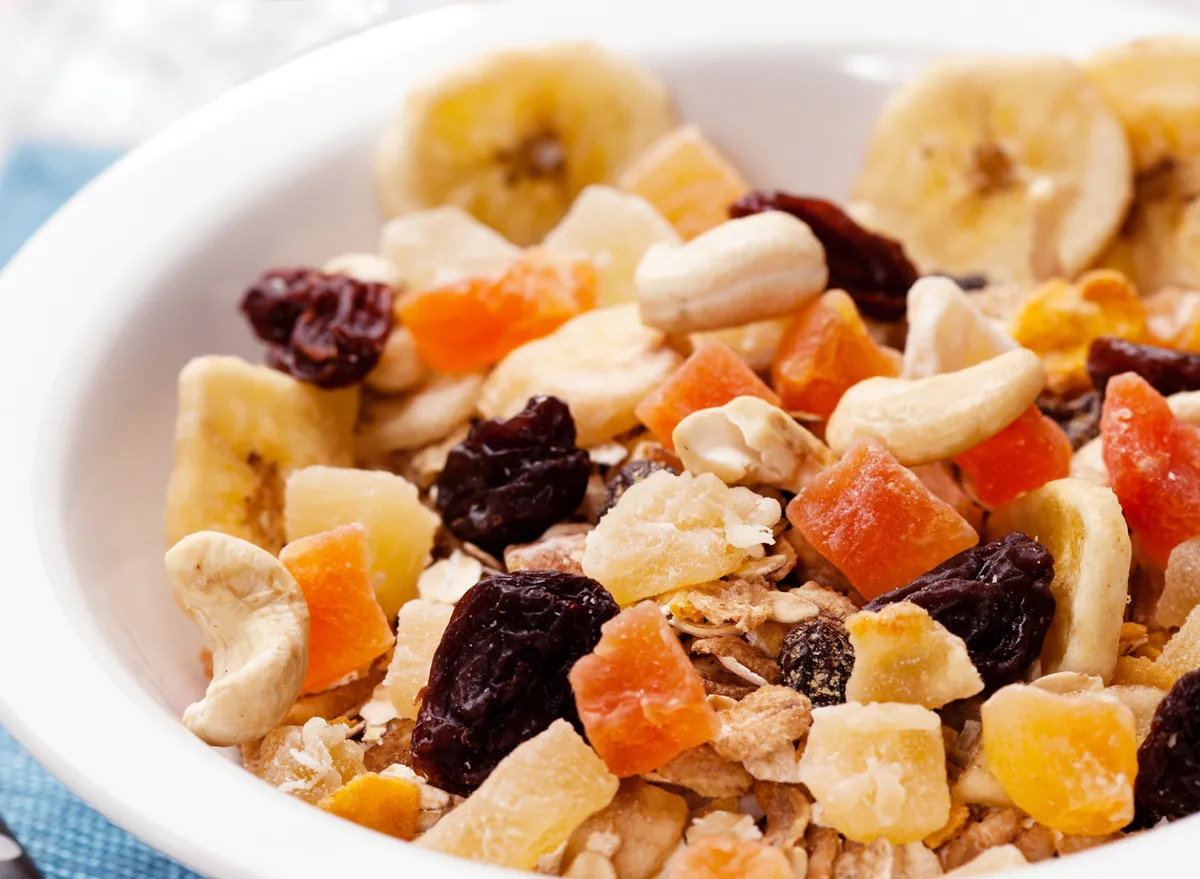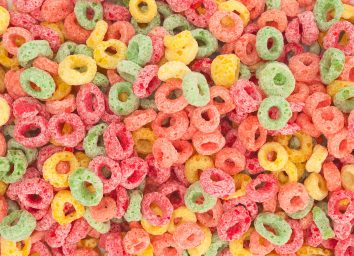Cutting This One Thing From Your Diet May Save Your Life, New Study Says

The added sugars content found in packaged foods and beverages is leading to millions of people suffering from chronic health conditions—and even death. Yet, according to research led by Massachusetts General Hospital, decreasing the amount of sweet stuff in prepackaged meals and drinks could have some life-altering effects.
The study authors designed a model to estimate the impact of sugar reduction among 15 categories of packaged foods and beverages. They relied on dietary data taken from the National Health and Nutrition Examination Survey and combined those stats with a policy proposed by the U.S. National Salt and Sugar Reduction Initiative (NSSRI), a partnership of more than 100 organizations and health authorities around the country. These include Massachusetts General Hospital, the Friedman School of Nutrition Science & Policy at Tufts University, Harvard T.H. Chan School of Public Health, and the New York City Department of Health and Mental Hygiene.
Related: Popular Drinks With More Sugar Than Soda, Says Science
According to their findings, which were published in the journal Circulation, cutting the sugar in packaged foods by 20% and in drinks by 40% could prevent 2.48 million cardiovascular disease events (such as strokes, heart attacks, and cardiac arrests), along with 490,000 cardiovascular deaths, and 750,000 cases of diabetes. These reductions could save $4.28 billion in healthcare costs over ten years, as well as $118 billion over the lifetime of the adult population.

In a separate ten-year study from the European Society of Cardiology that was also released this week, researchers from Greece discovered that consuming ultra-processed foods (such as sweet treats, sodas, sweetened beverages, and fast food) on a weekly basis was associated with an increased risk of heart disease. And with each additional highly-processed meal or snack eaten during the week could raise one's chances of being diagnosed with a cardiovascular condition by 10% within the decade. That study author added that "public health initiatives and nutrition policies" should be implemented to encourage better food choices.
While we can't control how companies make food, we can control the foods we purchase. "As a registered dietitian nutritionist, I recommend my clients to read the nutrition label and see where the sugar is coming from," says Sarah Koszyk, MA, RDN, a registered dietitian sports nutritionist, and author of "25 Anti-Aging Smoothies for Revitalizing Glowing Skin."
However, she quickly adds that not all sugars are created equal. "Fruits, vegetables, grains, starches, and dairy all contain natural sugar, which contributes to the total sugar found on a nutrition label," Koszyk explains. Plus, all of those foods (aside from dairy) contain dietary fiber, a type of carbohydrate that promotes satiety, as well as provides essential heart healthy benefits. "So what people need to watch out for is the amount of added sugar, such as table sugar, honey and syrups."

For example, if you're purchasing dried fruit, Koszyk says to opt for the product where the nutrition label only mentions the fruit itself, as opposed to the fruit and sugar. "The additional ingredient of sugar will contribute to the 'added sugar' amount, which isn't ideal."
Also, keep in mind that sugar can be hiding in plain sight since the sweet stuff goes by numerous names. According to the Centers for Disease Control and Prevention (CDC), brown sugar, cane juice, corn syrup, dextrose, fructose, fruit nectars, glucose, high-fructose corn syrup, lactose, malt syrup, maltose, maple syrup, molasses, raw sugar, and sucrose are all types of added sugar.
Yet when you're well aware that a packaged food (hi, baked goods!) is loaded with added sugar and you still want to indulge, Koszyk stresses that size and frequency are key. "Moderation and portion-control is the ideal route to follow versus eating reduced-sugar or low-sugar items because those quantities can still add up if a person is eating them often."
And if you're looking to go one step further and toss the sugar cubes and packets into the trash—but still want to sweeten your coffee, tea, and homemade desserts—she suggests turning to nature.
"Monk fruit and Stevia are both plant-based alternative sugars which can be good substitutes for people interested in adding in sweetness with a low glycemic index and little to no calories or carbs," continues Koszyk. "Yet both are very sweet! For each cup of sugar, you only need about one teaspoon of powdered stevia. And depending on the brand of monk fruit, it can either be 1:1 with the sugar or cutting the monk fruit quantity in half for the amount of sugar needed."
Now, be sure to read, One Major Side Effect of Eating Ultra-Processed Foods, Says New Study. Then, to get healthy tips delivered straight to your inbox, sign up for our newsletter!








